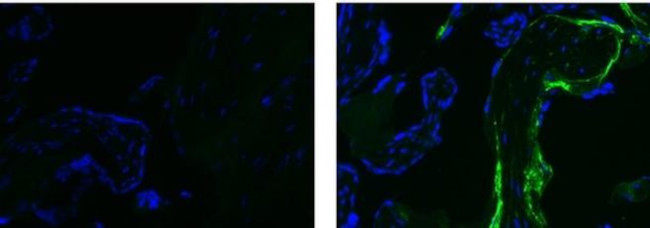Search Thermo Fisher Scientific
Invitrogen
Fibronectin Monoclonal Antibody (FN-3), Alexa Fluor™ 488, eBioscience™
This Antibody was verified by Cell treatment to ensure that the antibody binds to the antigen stated.
FIGURE: 1 / 12
Fibronectin Antibody (53-9869-82) in IHC (P)


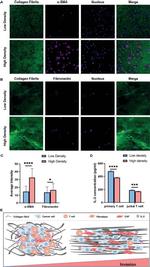
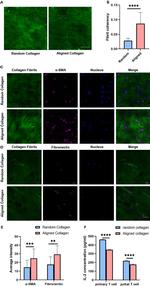
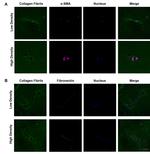
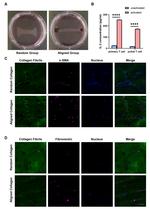
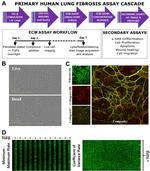
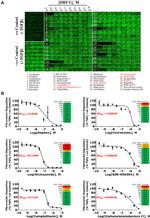

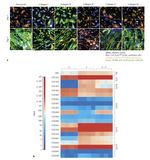
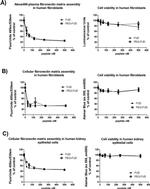

Product Details
53-9869-82
Species Reactivity
Published species
Host/Isotype
Class
Type
Clone
Conjugate
Excitation/Emission Max
Form
Concentration
Purification
Storage buffer
Contains
Storage conditions
Shipping conditions
RRID
Product Specific Information
Description: The FN-3 monoclonal antibody recognizes human fibronectin, a component of the extracellular matrix. This high molecular weight protein (almost 400 kDa) exists as an extracellular and a soluble plasma form. Fibronectin functions in cell adhesion and migration via integrins present on the interacting cell. Fibronectin also associates with collagen, actin and fibrins. In malignancies, fibronectin protein levels can be altered. In lung carninomas, expression is decreased. The FN-3 antibody recognizes a determinant on human cellular but not plasma fibronectin; this recognition is not lost upon trypsin treatment. Furthermore, FN-3 antibody has been shown to crossreact to bovine fibronectin.
Applications Tested: This FN-3 antibody has been tested by immunohistochemistry on FFPE human placenta (with IHC Antigen Retrieval Solution - Low pH (Product # 00-4955)) and can be used at less than or equal to 10 µg/mL. Is is recommended that the antibody be carefully titrated for optimal performance in the assay of interest.
Excitation: 488 nm; Emission: 519 nm; Laser: Blue Laser.
Filtration: 0.2 µm post-manufacturing filtered.
Target Information
Fibronectin is a disulfide-bonded dimer with a molecular weight range of 230-250 kDa. In the extracellular matrix of several connective tissues and vessels, fibronectin is present as an insoluble protein that is extensively cross-linked by interchain disulfide bonds forming high molecular mass polymers. Fibronectin is most abundant during embryonic development and tissue remodeling. Fibronectin is also present at high concentrations as a soluble plasma protein. Fibronectin is organized as a linear series of repeating modules which form domains for interaction with fibronectin itself, other matrix components (e.g. collagen and heparin) and receptors on cells (e.g. integrins). Fibronectin is present in a soluble dimeric form in plasma, and in a dimeric or multimeric form at the cell surface and in extracellular matrix. Fibronectin is involved in cell adhesion and migration processes including embryogenesis, wound healing, blood coagulation, host defense, and metastasis. Fibronectin has been implicated in carcinoma development in lung cancer. Further, Fibronectin expression is increased especially in non-small cell lung carcinoma. The adhesion of lung carcinoma cells to Fibronectin enhances tumorgenecity and confers resistance to apoptosis induced by standard chemotherapeutic agents. The gene encoding Fibronectin has three regions subject to alternative splicing, with the potential to produce 20 different transcript variants. However, the full-length nature of some Fibronectin variants has not been determined.
For Research Use Only. Not for use in diagnostic procedures. Not for resale without express authorization.
Bioinformatics
Protein Aliases: CIG; Cold insoluble globulin (CIG); Cold-insoluble globulin; DKFZp686F10164; DKFZp686H0342; DKFZp686I1370; DKFZp686O13149; ferritin L subunit; ferritin L-chain; Fibronectin; FN; Migration stimulating factor (MSF); migration-stimulating factor
Gene Aliases: CIG; ED-B; FINC; FN; FN1; FNZ; GFND; GFND2; LETS; MSF
UniProt ID: (Human) P02751
Entrez Gene ID: (Human) 2335

Performance Guarantee
If an Invitrogen™ antibody doesn't perform as described on our website or datasheet,we'll replace the product at no cost to you, or provide you with a credit for a future purchase.*
Learn more
We're here to help
Get expert recommendations for common problems or connect directly with an on staff expert for technical assistance related to applications, equipment and general product use.
Contact tech support
